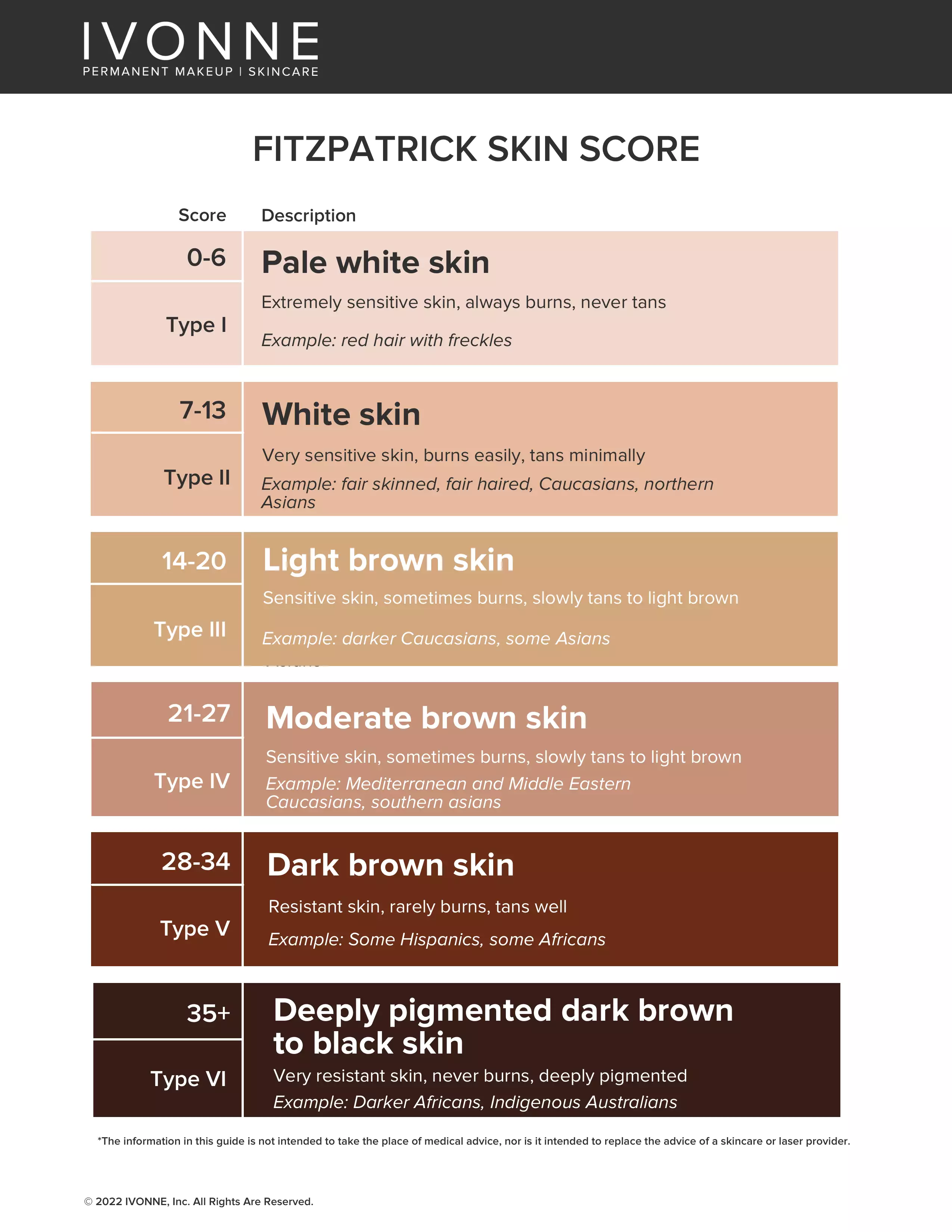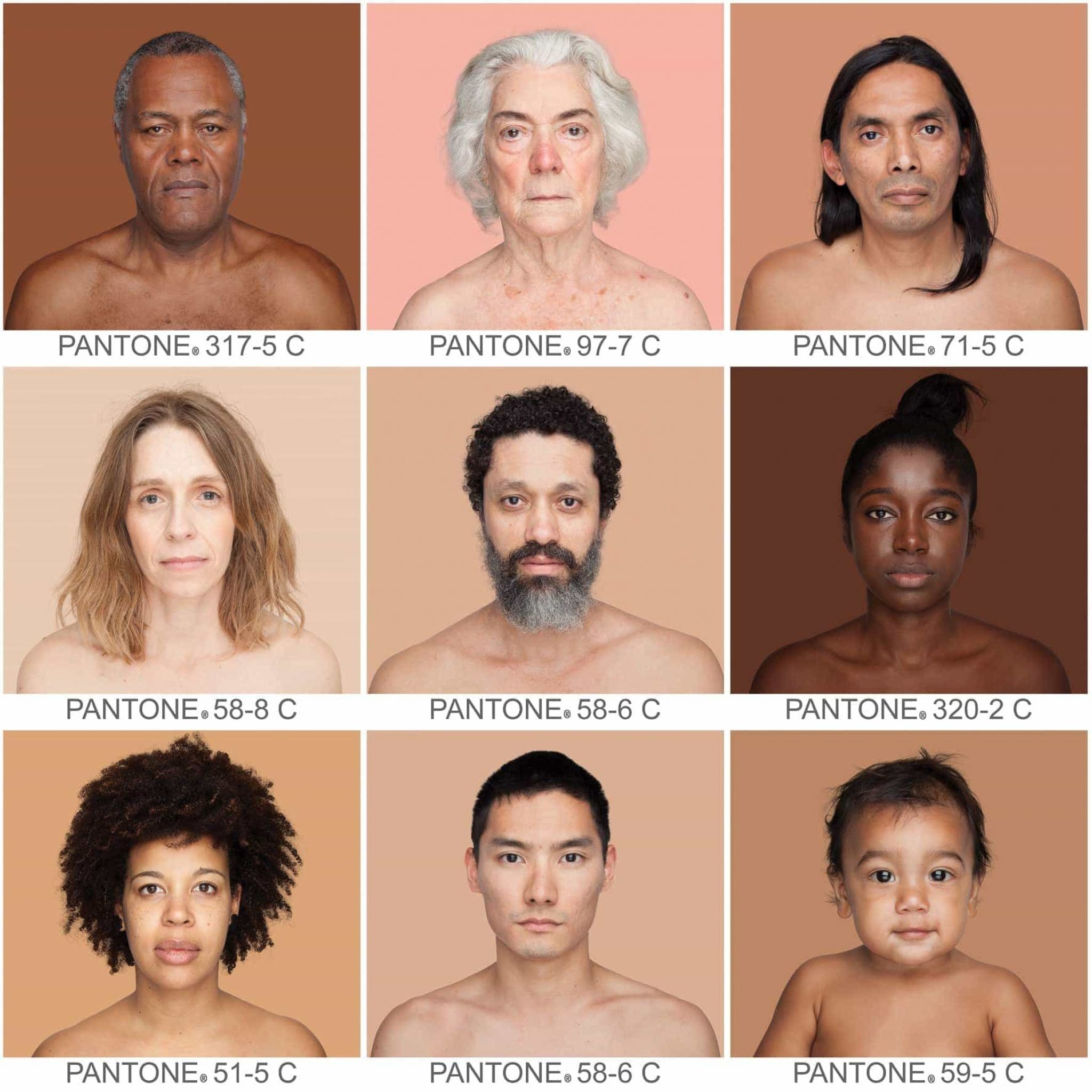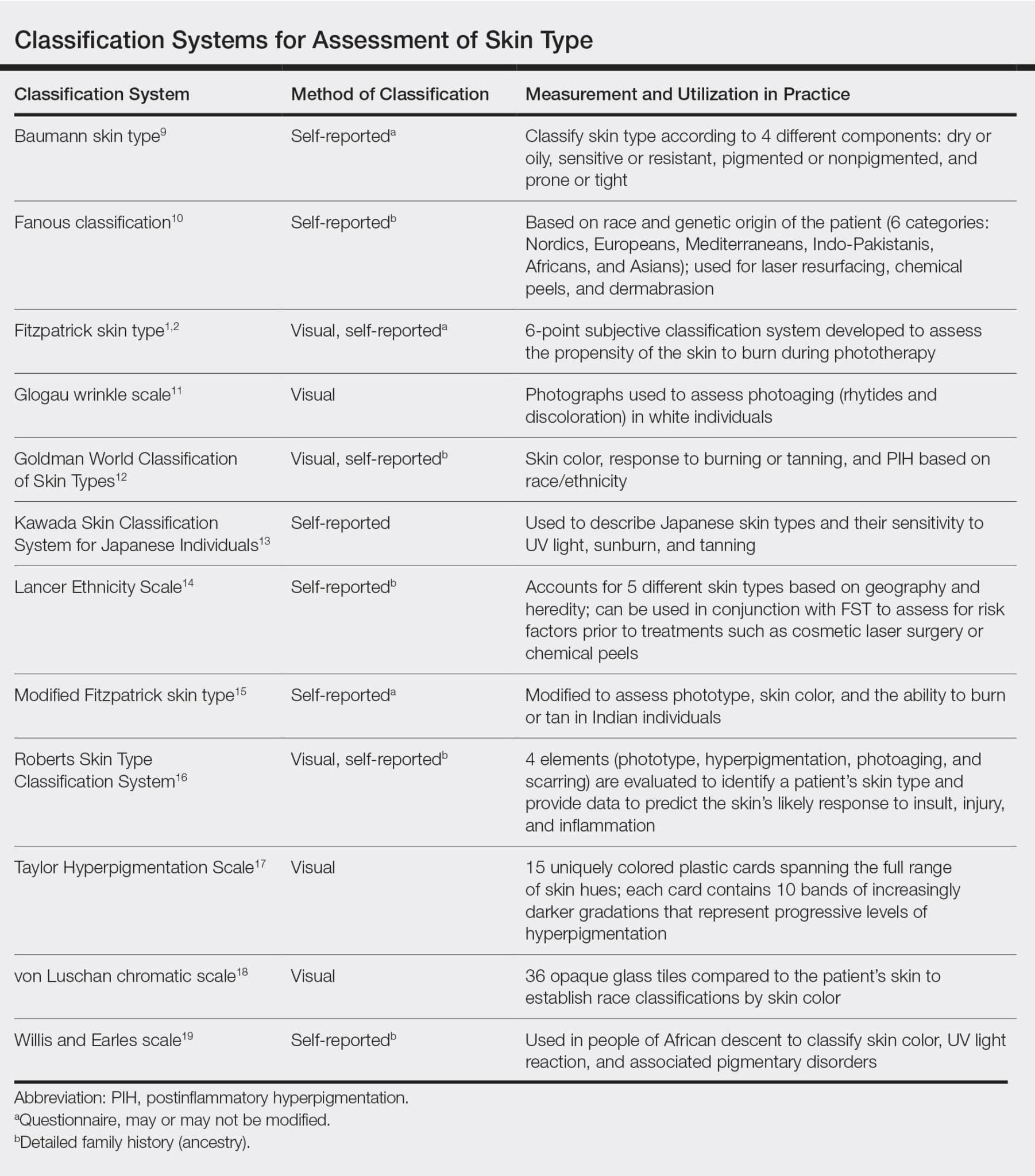Some clients may feel that their Fitzpatrick Skin Type somehow changes depending on how tanned they are at the moment of analysis, or their ethnicity and genetic makeup. However, Fitzpatrick Skin Type is much more about how your skin reacts to certain stimulus e.g. sun or (micro) injury.
Use the scoring matrix and guide below to determine your own Fitzpatrick Skin Type.
Disclaimer: The scoring matrix and guide on this website is intended for entertainment purposes only, and does not constitute or replace medical advice. To better understand your own skin type, please consult with your doctor or speak with your skincare provider in a consultation.


Schedule a virtual consultation with one of our trained providers.
Schedule A ConsultationHave you ever bought a new tinted sunscreen only to realize that it doesn’t suit your natural skin colour and undertone? Have you ever purchased that skincare collection that failed to give you results as promised?

Finding your skin type is one of the first steps to understanding and working with your skin. The most common classification model is the Fitzpatrick Skin Type model. This model was developed in 1975 by Thomas B. Fitzpatrick. The Fitzpatrick scale’s original purpose was to estimate the response of different skin types to ultraviolet light to administer light therapy for skin conditions namely Eczema, Psoriasis, Vitiligo, and others. The Fitzpatrick Skin Type model is still widely used for dermatological research into human skin pigmentation.
Determining your skin colour can help your PMU Artist choose the right permanent makeup pigments and assist your skincare specialist in creating a skincare plan. Locating your skin type can sometimes be done using resources like the chart above, but it is better to consult with a trained physician or professional.
When factoring in your skin type, think about all of the attributes that make up you. Your eyes and hair colour can tell you more about your genetic makeup than just your skin pigmentation. Our hair and eye colour provide clues into our genetic composition, and these are important.
Maintaining excellent skin health is important, and it’s best to discuss any skin concerns with a physician/dermatologist. Before using any self-prescribed cosmetic or beauty treatments, be sure to review your concerns and skin care plan with a qualified professional.
Schedule A ConsultationMaintaining excellent skin health is important, and it’s best to discuss any skin concerns with a physician/dermatologist. Before using any self-prescribed cosmetic or beauty treatments, be sure to review your concerns and skin care plan with a qualified professional.
Stats Canada has shown an 18% increase in those who identify as visible minorities between the 2016 and 2019 census period. As racial and ethnic distinctions continue to be blurred, attempts to include all non-white skin types under the banner of skin of colour becomes increasingly problematic.
The full number of skin colours is really unknown, probably infinite, and impossible to catalogue without reaching every single human in the world population. As shown in the work of Brazilian artist Angelica Dass, her “Humanae” project shows increasingly distinct skin colour types. Due to constant demographic changes and the limits of the Fitzpatrick Skin Type (“FST”) model, we must account for more skin types.
Angelica’s page has identified 250 different Pantones. This is increasingly important for the safe and effective delivery of skincare, and cosmetic products and treatments.
As a pigmentation and skincare service provider, our mind is always on delivering the correct product or service to our clients, and the (mis)use of FST may fail to adequately service clients.
MDEdge reports in their survey that between 1/3 and half of academic dermatologists and dermatologist trainees rely on FST to describe skin colour.
The incorrect use of FST may occur more often in those professionals who do not themselves identify as skin of colour.

Artist Angélica Dass rethinks the concept of race by showing the diversity of human skin colours in her global photographic mosaic. © Angélica Dass | Humanae Work in Progress
Within the Permanent Makeup industry, new artists were warned by trainers against practicing cosmetic tattoo procedures on Fitzpatrick 4-6 types because of the risk of hyperpigmentation, risk of increased trauma, and difficulty in choosing pigment colours. This is all changing.
Through ongoing research and travel, we have coordinated and collected information from artists around the world who have achieved great success in working in all skin types. With the change in Pantone taxonomy, we can find pigmentation and skincare solutions for individuals of all colour and form a plan that suits unique skin types, even those not accounted for within the FST model.
The dilemma of classifying individuals with non-white skin or skin of colour is not easily answered. Other classification models have been proposed to improve the sensitivity and specificity of identifying patients with skin of colour. Refining the Fitzpatrick Skin Type classification has been one approach. Using terms like skin irritation, tenderness, itching, or skin becoming darker from sun exposure rather than painful burning or tanning may result in better identification. (Sharma VK, Gupta V, Jangid BL, et al. Modification of the Fitzpatrick system of skin phototype classification for the Indian population, and its correlation with narrowband diffuse reflectance spectrophotometry. Clin Exp Dermatol. 2018;43:274-280.)

Offering skincare and pigmentation solutions requires a unique and customized approach. This website aims to support all client’s and visitors’ desires to match them with products and services according to their skin type classification. It is not meant to replace medical advice, and this project is ongoing.
Schedule A ConsultationIVONNE, Inc. is a locally owned boutique cosmetic clinic focused on the research, development, and implementation of effective skincare, permanent makeup, and laser treatments. Founded in 2017 IVONNE focuses on providing clinical treatments using only the most advanced products and technologies. IVONNE is one of the first technology-based, end-to-end permanent makeup and skincare clinics with a focus on skin health, pigmentation, and laser removal processes. IVONNE's delivery of services is focused on a curated collection of treatments and products, through its close partnerships with regulatory experts, medical suppliers, and cosmetic manufacturers. IVONNE has built what it believes to be the next generation in cosmetic services, encompassing state-of-the-art technology and use of medical-grade skincare formulations.